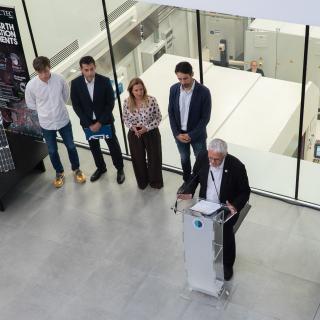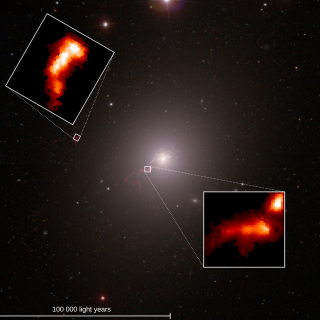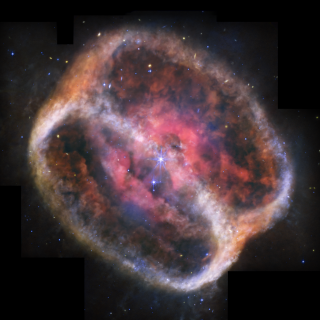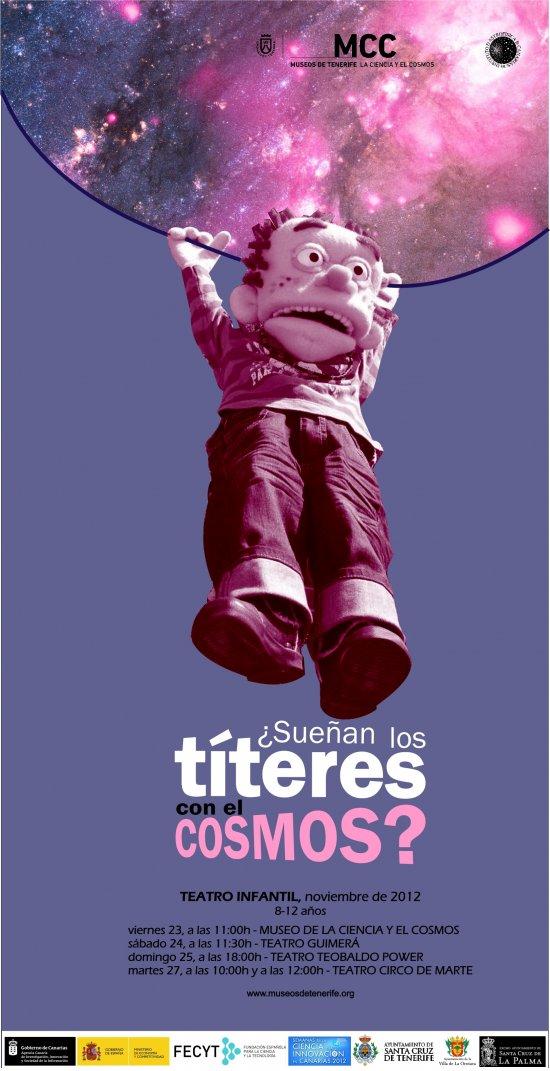It may interest you
-
 La presidenta del Cabildo de Tenerife, Rosa Dávila, ha anunciado esta mañana la aprobación de una subvención de 2,2 millones de euros al Instituto de Astrofísica de Canarias (IAC) para la fabricación de DRAGO-3, una cámara de última generación que se integrará en una constelación global de satélites en órbita baja. Esta red de satélites interconectados está concebida para ofrecer servicios globales o regionales para Tenerife. El importe exacto de la subvención asciende a 2.208.120 euros. El anuncio se ha realizado durante una visita a las instalaciones de IACTEC, la división tecnológica delAdvertised on
La presidenta del Cabildo de Tenerife, Rosa Dávila, ha anunciado esta mañana la aprobación de una subvención de 2,2 millones de euros al Instituto de Astrofísica de Canarias (IAC) para la fabricación de DRAGO-3, una cámara de última generación que se integrará en una constelación global de satélites en órbita baja. Esta red de satélites interconectados está concebida para ofrecer servicios globales o regionales para Tenerife. El importe exacto de la subvención asciende a 2.208.120 euros. El anuncio se ha realizado durante una visita a las instalaciones de IACTEC, la división tecnológica delAdvertised on -
 An international team of astronomers has captured the most detailed and completed view yet of the mysterious filaments surrounding the giant galaxy M87. Using new observations from the Gran Telescopio Canarias and the Canada-France-Hawaii Telescope, the study reveals how these long, thread-like structures move, evolve, and interact with their galactic environment and the activity of the central supermassive black hole. These findings have just been published in Monthly Notices of the Royal Astronomical Society. M87: a giant galaxy and its mysterious threads M87, located about 55 millionAdvertised on
An international team of astronomers has captured the most detailed and completed view yet of the mysterious filaments surrounding the giant galaxy M87. Using new observations from the Gran Telescopio Canarias and the Canada-France-Hawaii Telescope, the study reveals how these long, thread-like structures move, evolve, and interact with their galactic environment and the activity of the central supermassive black hole. These findings have just been published in Monthly Notices of the Royal Astronomical Society. M87: a giant galaxy and its mysterious threads M87, located about 55 millionAdvertised on -
 An international team, including a researcher from the Instituto de Astrofísica de Canarias (IAC), has obtained an incredible image of the planetary nebula NGC 1514 using the James Webb Space Telescope (JWST), revealing the nebula's spectacular dusty rings in unprecedented detail. NGC 1514 was one of the first nebulae to be studied by astronomer William Herschel, who noted that when viewed through his telescope (the biggest in the World at the time) the nebula looked like a fuzzy cloud somewhat similar in appearance to one of his other discoveries: the planet Neptune. The new images acquiredAdvertised on
An international team, including a researcher from the Instituto de Astrofísica de Canarias (IAC), has obtained an incredible image of the planetary nebula NGC 1514 using the James Webb Space Telescope (JWST), revealing the nebula's spectacular dusty rings in unprecedented detail. NGC 1514 was one of the first nebulae to be studied by astronomer William Herschel, who noted that when viewed through his telescope (the biggest in the World at the time) the nebula looked like a fuzzy cloud somewhat similar in appearance to one of his other discoveries: the planet Neptune. The new images acquiredAdvertised on
